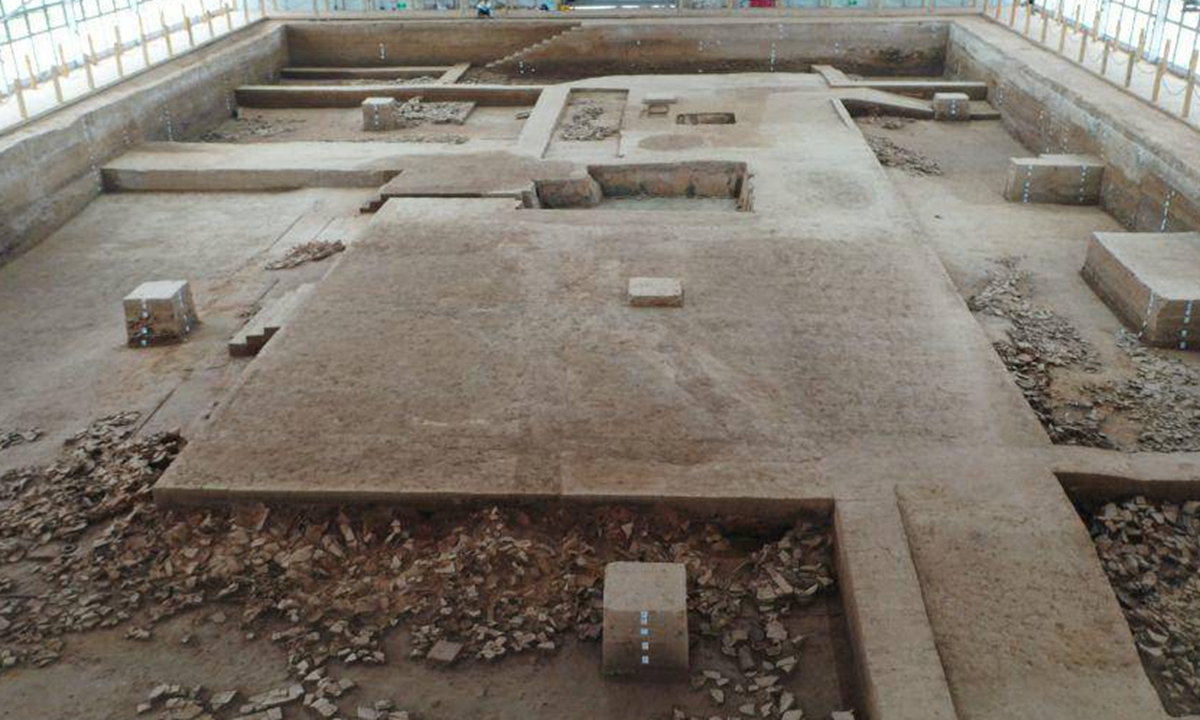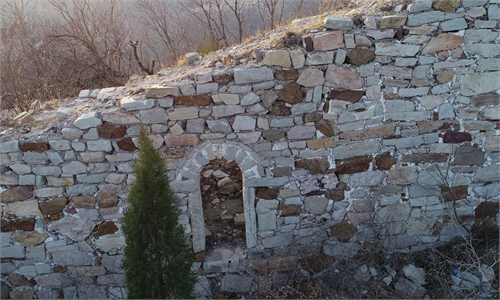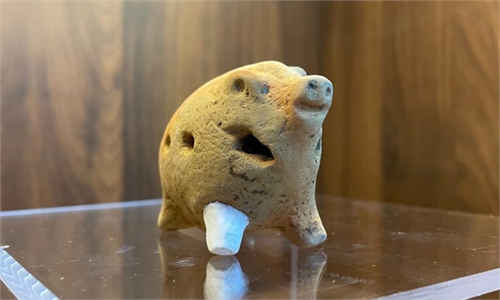ARTS / CULTURE & LEISURE
New archaeological site park on Xiongnu tribes shows cultural diversity

City Ruins in Northwest China's Shaanxi Province.Photo:Sina Weibo
Based on the historical resources at the Tongwan City Ruins, a new national archaeological site park has opened on Monday in Jingbian county, Northwest China's Shaanxi Province.
The Tongwan City Ruins are the only capital city site founded by the Xiongnu tribe discovered to date.
An ancient nomadic tribe, the Xiongnu people lived throughout what is today northern China and Central Asia during the Spring and Autumn Period (770BC-476BC), archaeologist Wang Meng, who specializes in ethnography, told the Global Times.
Wang also noted that the Xiongnu people had formed a "powerful and systematic culture" that can be reflected in their economic, political and military systems.
"The Xiongnu people's representative grassland culture was interwoven with China's iconic agricultural culture," Wang said, indicating the fact that the Xiongnu people's presence in Chinese history also reflects China's ethnic and cultural integration as well as diversity.
The new archaeological site park covers a total area of 42.6 kilometers.
Beside the core goal to protect the Tongwan City Ruins archaeological site, it will also carry out other functions such as promoting education and local tourism.
Cultural sociologist Fang Qingqiong told the Global Times that China's national archaeological site park scheme is "much more profound and comprehensive" than just protecting a particular site.
"The scheme aims to connect archaeology with social sectors such as tourism, education and the lifestyle industry, those sectors that essentially benefit the public," Fang noted.


